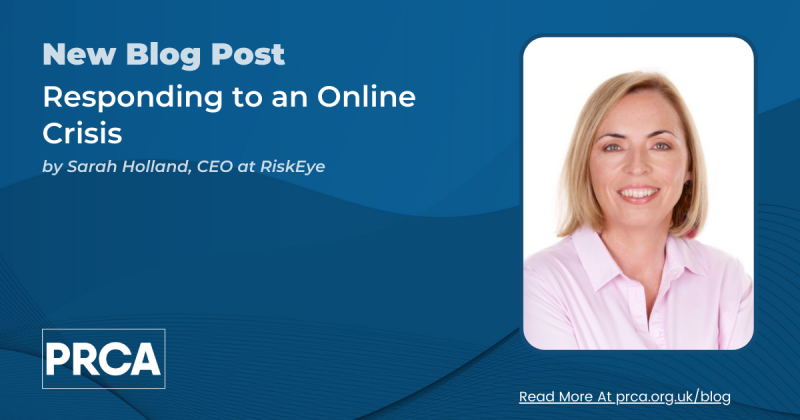
Responding to an Online Crisis
In the recent PRCA Crisis Comms Conference, it became evident that crisis communications for online events demand distinct skills and advice compared to conventional PR crisis situations. The digital landscape presents unique challenges, especially with social media. Unlike other forms of communication, everything shared on social platforms is public and can spread rapidly. Expertise is crucial to assess the impact, anticipate behaviour, and manage repercussions effectively.
What risks are you dealing with? Misinformation, Disinformation and Social Engineering
It takes only 3 seconds of audio to create a message that sounds like a CEO asking for money to be moved for a deal that is sensitive – a growing and challenging social engineering crisis that every business faces - the CEO scam
It takes a limited set of skills used in conjunction with AI to alter a video or image to spread disinformation about a business and destroy its reputation.
A business with limited reputation equity will find it very difficult to counter misinformation that is being spread because a rumour is being believed.
What can Comms and PR leaders do to adequately prepare and counter these risks?
PREPARE
Internal processes
- protect your online assets with robust security measures and also protect your internal decision making with the equivalent of 2 step verification – never allow it to be possible for an employee to make a payment through fraudulent social engineering because there wasn’t a robust decision-making process enabled
Suppliers and third parties
- ensure the online security of your suppliers and third parties is as robust as yours – do not let them be the weak link in the chain. Contracts and agreements should hold everyone to account to ensure a complete security circle
- test defences – don’t just put your crisis manual on the shelf, test your organisation, update it with learnings and keep it a up to date with the latest threats and potential vulnerabilities in your organisation
Threat analysis
- work with a third party to analyse your threat surface area to identify weaknesses and gaps and strategies for ongoing security
Monitor
- know what is being said about you – don’t try and do this yourself – use third party experts who can cut through the noise and deliver the weak signals or actual risks to you in the moment so you can be as proactively prepared as possible
Experts Working together
Engaging with the right experts and getting them in place before and during a crisis is imperative. Don’t leave it to a crisis though before you work with them, engage with them regularly, ask them to update you on new and known threats so that you can include these in your planning.
During a crisis assemble all your experts together - don’t make snap decisions or ones that you have made in the past. The online world creates an entirely new and evolving threat surface area that needs to be often treated differently – decision you made for real world events may no longer apply and could have serious implications, ultimately doing more harm than good.
About RiskEye
RiskEye are experts in online risk management. With over a decade of experience, they track and assess behaviours that lead to online harm, anticipatinglikely outcomes to minimize crisis potential. They collaborate with top brands and businesses, offering proactive and preventive strategies to safeguard reputations. Their work has fostered a community of clients who benefit from a safer online environment.
Contact: Sarahholland@riskeye.com www.riskeye.com
